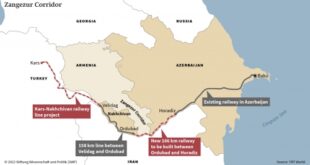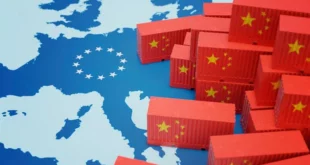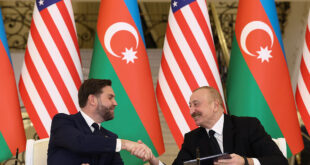 This is a printout of an interview with Kavkaz Center’s cooperator Mikael Storsjö in the Swedish Radio on Monday 15.05.2006. We publish this interview in its entity, as we find authentic information of what happened in Sweden a week ago to be of public interest for all our readers.
This is a printout of an interview with Kavkaz Center’s cooperator Mikael Storsjö in the Swedish Radio on Monday 15.05.2006. We publish this interview in its entity, as we find authentic information of what happened in Sweden a week ago to be of public interest for all our readers.
Reporter: We shall start our program with Chechnya Рwho is allowed to say what about the conflict there. Last Friday the International Prosecutor and the Criminal Investigation Police shut down a web server used by the Chechen resistance forces. The police also confiscated the servers. The reason for this action was announced to be that the web server, which has the name Kavkaz Center, is agitating for violence and acts of terror. The owner of the servers is the Swedish-speaking Finn Mikael Storsj̦, an IT-entrepreneur, who now has filed a complaint to the Chancellor of Justice in Sweden against the actions of the prosecutor. Mikael Storsj̦ is here in our studio today, welcome.
Mikael Storsjö: Thank you.
R: Firstly, what is Kavkaz Center?
MS: It’s a web site which is published by a news agency, which reports news especially from Chechnya and generally from Caucasus.
R: From a Chechen view?
MS: Yes, it can be clearly stated that it’s from a Chechen so-called separatist view, and the reporting has strong Islamic components also.
R: It was started by one of the leaders of the separatist forces, Movladi Udugov, and they are also said to be Islamic, as you say. What is your opinion of these people?
MS: Well, it’s people who are striving for a free Chechnya. These people behind Kavkaz Center are using the pen as their weapon. They try to inform the world about what is happening in that area. We have to remember, that the information from Caucasus is very limited. The media policy in Russia is already on a general level very repressive, but regarding Caucasus we can speak about a hermetically closed area for foreign and independent journalists. In this situation Kavkaz Center is, maybe, the main breathing hole for information, the only news service that is able to lift the curtain a bit and tell the world what is happening there.
R: Before we continue, you are a Finnish IT entrepreneur, what is your role in this?
MS: My role is such, that when Kavkaz Center had problems in Lithuania and the secret police stopped their activities there, I offered my own equipment to their disposal, as I was an Internet provider.
R: Why?
MS: Well, I have had a great interest for Caucasus almost since my childhood, since I read Tolstoy’s novels about the area and started to understand what is happening over there. What is happening there today is exactly the same as we can read about in Tolstoy’s novels, for example Hadji Murat. I wanted to read information from this web site myself, and thus it was quite natural to help them in publishing it. I wanted to satisfy my own needs to read news from Chechnya.Â
R: What do they pay you?Â
Â
MS: It costs …..
R: What do you mean?
MS: These people live with quite scarce financial resources, so I haven’t got any payment. On the contrary, I have paid myself for server equipment and Internet connections. In economical views, it’s quite bad business for me.
R: We shall speak with Mikael Ögren from the criminal investigation police, who is the police investigating this case. We have tried to get comments from officials, but Mikael Ögren doesn’t want to say anything.
Mikael Ögren (on phone): I’m sorry. I’m the police investigator in this case, but I have been ordered by the chief of the preliminary investigations, Håkan Roswall, not to comment anything about this case. I’m not allowed to say anything, I’m sorry.
R: Do you know anybody else who can give us some comments?Â
Â
MÖ: No police will comment anything; you have to contact Håkan Roswall.
HÃ¥kan Roswall (on phone): Roswall.
R: Hello, my name is KM, I call you from Studio One, the Swedish Radio. I want to ask you some short questions about Kavkaz Center, and tape them for our sending.
HR: In that case, I have nothing to tell you.
R: Why not?
HR: I have no reason to tell you that either. I don’t want to speak about Kavkaz Center.
R: You can’t tell us anything about why you investigate the web site for agitation?
HR: Now you start to speak about this case and investigation. I don’t want to give any comments. I have used not to comment an ongoing investigation. Before there is made some kind of decision which will end the investigation phase. I won’t tell you anything.
R: This was the prosecutor HÃ¥kan Roswall, who made the decision to confiscate Mikael Storsjö’s servers. You have made a complaint to the Chancellor of Justice about this. Why?Â
Â
MS: This is basically a matter of freedom of expression. The Swedish law says that this kind of activity has a constitutional protection. In such a situation a single prosecutor shall not be allowed to act as judge, police and executive power in one person.
R: Do you know why they took these steps against the web site?
MS: This is an interesting question. I asked the prosecutor Håkan Roswall by phone many times what pages on the web site he wants to criticize, but he didn’t want to inform me about that, because the investigation wants to keep it secret. This is a funny argument, as the pages are publicly accessible, some 5 billion people can read them. It’s a lot of secrecy and hiding in this case.
R: But you must have some kind of idea what it is about?
MS: Well, today when this case was in court because I asked to get my servers back, the court was behind locked doors. This prosecutor also wanted the judge to prohibit me from telling anybody what happened in the court. The judge didn’t accept that, so now I can tell all listeners of the radio that Roswall has not a case, actually nothing to present. This is the secret information, which he wanted to hide from the public. The prosecutor read some fragments from some articles in quite bad Swedish translation, which articles do contain applausing of some violent actions. This is, anyway, very very far from what the Chancellor of Justice in his earlier decisions has found to be agitation for violence.
R: What is it that they applause?
MS: Well, the Russian Embassy has filed two requests to the prosecutor. The first request did not cause actions. In this first letter, the Russian Ambassador complained hat Kavkaz Center had transmitted information to TT, Tidningarnas Telegrambyrå, so that TT published an interview with Shamil Basayev, in which he was said to speak freely, agitate for terror and so on. At this time Roswall didn’t take any actions against either Kavkaz Center or TT, as he probably understood that he would be publicly hanged by the Swedish media people if he started any actions against TT. So he decided to start actions against the message transmitter instead. Probably he assumed it will be a fast, calm and quiet action to steal the servers from a Finn living in Helsinki.
R: We shall return to that question. The background is such, that the Russian Embassy is said to have complaint many times upon the content of this web page. Anatoli Kargapolov is the press attached at the Russian Embassy.
Anatoli Kargapolov: (speaking in Russian)
R: On the Russian language part of this web page, there are encouragements to use violence, and that is very wrong we think. In a civilized society, there should not exist such encouragement, says Anatoli Kargapolov, the press attaché at the Russian Embassy. We have also Max Lapitsky here, from the Russian department of the Swedish Radio. You have looked at this web page, how would you describe it?
Max Lapitsky: It is a very huge and comprehensive web site; you can very well compare it with big Swedish newspapers such as Dagens Nyheter. There is a lot of frequently updated news. The articles describe the conflict there. The focus is about that the war is not over, it is going on. Today for example, there is an article about 29 died persons in this conflict during the last two weeks. There is a lot of anti-Russian spirit on this page; you can’t avoid noticing that. There is much material insulting the Russian power. Sometimes it is exaggerated. There is agitation against Russia.
R: Have you seen anything such, which could have got the Embassy to react?Â
Â
ML: Indeed, I found something such. There are for example some articles written by Amir Seifullah. The articles are such that you could think they were written by Osama bin Laden, there is agitation for Jihad, the holy war. People are encouraged to join this war. There is not agitation for violence, but agitation for joining this war.
R: Mikael Storsjö, how do you look upon such agitation?Â
Â
MS: I don’t speak Russian myself, but I have had many pages translated for me, and I think this is true, what he just said. There is however one thing to keep in mind. When they speak about Jihad, it is not about violence directed outwards. The concept of Jihad, or Gazavat as it is called in Caucasus, is a war of self defense. It’s about a war you have full right to fight when somebody intrudes your area. In this respect Jihad is not very much different than the right the United Nations gives its members, you have allways the right to defend yourself.
R: The Chechen conflict has, besides happenings in Chechnya, also caused many terror actions outside Chechnya. Let’s listen at a program on Swedish Radio in September 2004, when our reporter reported from Beslan in North Ossetia.
Reporter on air: I have been speaking with persons who have been close, and they have seen blood and bodies to be found inside. I have heard about children who survived, and have been telling about explosions that made walls and roofs in that area red of blood, and a woman had thrown herself over a child that was rescued, but the woman herself died……
R: This was our reporter Marianne Persson-Lövgren reporting from Beslan one year and a half ago. 331 persons died, among them 186 children according to official information. Mikael Storsjö, the man who has taken responsible for Beslan and also the happenings last autumn in Kabardino-Balcharia, Shamil Basayev, he has got editorial space on Kavkaz Center, he has published letters and such on this web site. Why is it right to give such a person editorial space?
MS: Well, you could ask TT this question as well and ….
R: But now I’m asking you.
MS: OK. The situation is such, that it’s the duty of a news agency to report about happenings also if they are not very nice. If we explicitly speak about Shamil Basayev, and mention how many people died in Beslan, we could as well speak about Dubrovka too, well we do not know exactly what his responsibility for these actions is. But let’s assume that he is responsible. Then we have to keep in mind that his crime is rather such, that he has delivered the victims to the butcher. The killers were not Chechens. In Dubrovka FSB killed the people by gas, in Beslan by using flame throwers and explosives. If Basayev is responsible for these actions, then he has definitively made a crime against humanity as he has delivered the people to the butcher, but the big criminals are of course the butchers themselves.
R: Who is that?
MS: Putin and his generals.
R: You mean that they were responsible for 186 children that died in Beslan?
MS: Definitively yes. It was in the moment when the president of the free Chechnya, Aslan Maskhadov, had told that he is prepared to come to Beslan and try to end that violent conflict, at that moment they got a hurry to end up the situation in a bloody way. At that moment they fired the flame throwers directly into the gym, started explosions and so on. The deaths are due to this action. But of course, also the persons who started this happening have their share of responsibility.
R: What is your opinion about Basayev?
MS: I have a bit a dual opinion. As a fighter he is outstanding, he was one of the most prominent persons last time when Grozny, or Jokhar as the town is called today, was deliberated last time. But it is quite clear that he is prepared to go quite far in his military actions.
R: Do you think he is a terrorist?Â
Â
MS: I would not say that he is an obvious terrorist, but I regard many of his actions a bit controversial. Let’s mention, that Basayev has declared that he is willing to be judged by an international court dealing with the terror in Caucasus. His only precondition is that also other people who have taken part in the violence in this area shall be brought to trial. My opinion is such, that if also all the Russian generals who have killed maybe 260.00 people are brought to the same court as Basayev, and they all are punished according to the same scale of punishment, then all the Russian generals probably will get life sentences, but Basayev would get some small fines.
R: This was Mikael Storsjö, who is behind the web server publishing Kavkaz Centers web site. We shall add that the description of history about Beslan is his own opinions. Thank you.
 Eurasia Press & News
Eurasia Press & News



